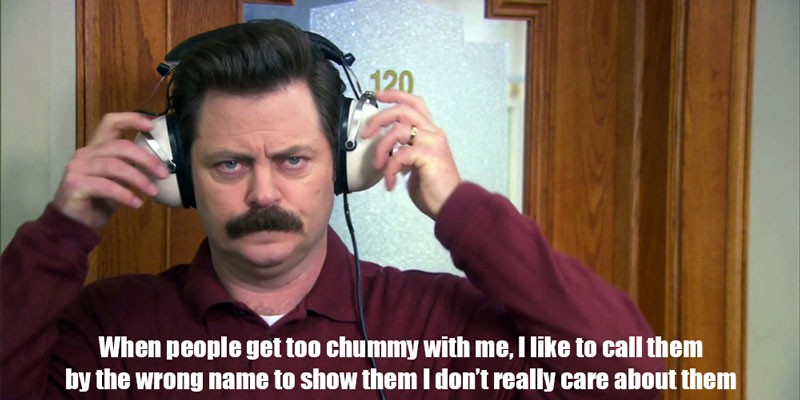3 Bad Interviews – and What Happened to the Job Seekers that Botched Them
Nerves aside, most experienced candidates can give a decent job interview. Prepare 2-3 stock answers, pivot away from risky topics, be courteous, and above all, smile.
That’s why when interviewing writers for my content agency, I was surprised when a candidate who had tested beautifully started rambling, overshared, trashed his former boss, turned belligerent, hedged every question, and basically talked himself clean out of the job.
Beyond cultural fit, I couldn’t imagine putting him in front of a client, or even shooting the breeze with him at lunch. The consensus from my colleagues was the same: talented as he might be, he was just a little too awkward to hire.
Yet awkward people get jobs all the time. For one thing, interviews aren’t always the best indicator for success. For another, I figured there must be hiring managers out there who are more compassionate and forgiving of social flaws than me--especially in light of technical proficiency. So I asked around.
The responses floored me. I’m guilty of rejecting an awkward candidate, but others went forward with these candidates and got terrific results. From the petulant genius to the suspected serial killer, here are the three most interesting stories I heard.
The Petulant Genius
A former sales hiring manager for a Fortune 50 company shared a story about a new college grad that had a 4.1 GPA--and perfect ACT and SAT scores. Normally, Gene Caballero, now co-founder of Green Pal, asked candidates to relay experiences illustrating persistence, resilience, drive, and other desirable traits. For this new grad, he modified his questions into hypotheticals.
Q: If you had a customer that was upset at you or wouldn't buy your product, what would you do?
A: I don’t know.
For the next 10-plus questions, the candidate continued to answer “I don’t know.” So Gene changed tactics.
Q: What are your biggest accomplishments?
A: Everything has been easy for me so far. I have yet to be challenged.
Q: What are your strengths and weaknesses?
A: I remember everything. I am not aware of any weakness.
“After our one-way conversation, these were hardly the humble answers I was looking for,” said Gene. But then he seized on one weakness:
Q: You know your resume has typos in it.
A: My mom typed it up for me.
Q (pause): Do you have any questions for me?
A: When can I start?
“I guess that was his hard close on asking for the job,” said Gene, laughing.
The sales team was understaffed. Gene took a risk. “We hired him, and he adapted. In five years, he went from $35,000 [in total comp] to $150,000. The corporate ladder is not going to be tall enough for him,” he says now.
Good hire? Yes. This candidate lived up to his word, exhibiting impressive strengths, and leaving behind a trail of admirers. My takeaway: it can pay to gamble on a candidate, especially if you’re on the fence about his or her capabilities.
“It’s My Couch. Mine!”
Consultant Anthony Richardson once found himself interviewing a (in his words) “very awkward” candidate on behalf of a startup. But in the face of “undeniable talent,” the company hired the guy. Anthony relayed the story of what happened next:
“[Employee X] made requests that most people would consider outlandish; most notably, he wanted to work from his own personal couch that no one else could sit on or use.
For months, everyone who worked there knew it was this employee’s couch. One day, the [startup’s] lead venture capitalist comes for an angry visit with the founder and sits down on the couch. The founder, who was afraid to interrupt the VC during an epic scolding, says nothing. X walks in, and is stunned by [the interruption of] his daily routine. After a minute, X walks into the supply closet.
For five minutes, [people] heard varied sounds coming from said closet. Suddenly, X emerged with duct tape, using it to build a makeshift sling that held his computer hands-free, like [a] laptop Bjorn. For the next 30 minutes, he does a chair pose against a nearby wall, arms slightly extended, T-Rex style, over this floating laptop. Best day ever.”
Good hire? Definitely. X was able to deliver the goods--and provide inadvertent amusement at absolutely no harm to himself or to his peers. My takeaway: a candidate that makes seemingly outrageous demands might just be a future employee that knows exactly what he needs to bring his A-game. The key is to ask yourself whether you can meet them. If you can, then focus on capabilities and talent.
The “Serial Killer”
Jesse Harrison, founder and CEO of Zeus Legal Funding, hired an awkward engineer.
“The moment he walked into my office, I knew he was awkward because I am awkward myself and it takes one to know one,” she said. She paraphrased an excerpt from the interview:
Q: What made you decide to apply to this job?
A: I hate people and this job doesn't require human contact.
Q: Why did you leave your previous job?
A: Because of my dad.
Q: Do you have any questions for me?
A: No. Why would I have a question?
Said Jesse:
“The whole time, he made zero eye contact with me. He looked at the floor or wall or the window behind me. Even the handshake was strange. He shook my hand quickly and pulled his away. When he shook my partner's hand, he said, ‘Your hands are so soft. You remind me of my mom.’ My partner said his hand was really sweaty.
At the end of the interview, he said, ‘I guess I didn't do a good job. You can hire someone else. If you don't want to hire me, it's fine. Whatever makes you happy. I don't need this job that bad. I have savings in the bank.’
I did not let the way he presented himself affect my view of his skills and accomplishments. The position was technical; he had the skills and knowledge for the job, and I knew he could provide value to our firm.
But then, my partner and I fought about it. She felt he gave off ‘serial killer vibes’ and would be afraid of coming to work if we hired him. I could relate to him, but she couldn't.
We ended up hiring him. Nine months later, he's still with us. My partner doesn't talk to him, nor does he interact with the rest of the team. He just sits there and does his work. He used to have an office mate, but he drove her crazy so she changed desks.
Good hire? Absolutely. This candidate is performing well, and Jesse has no regrets. My takeaway: don’t dismiss a candidate based on a negative first impression. Question that impression: is it really a black mark? Or is it just something that indicates this person is different in general--or different from yourself? If the latter, your judgment might be clouded; solicit other opinions, and keep an open mind.
*Image from Parks and Recreation
To receive blog posts like this one straight in your inbox, subscribe to the blog newsletter.
Topics: Interview questions
Related articles




